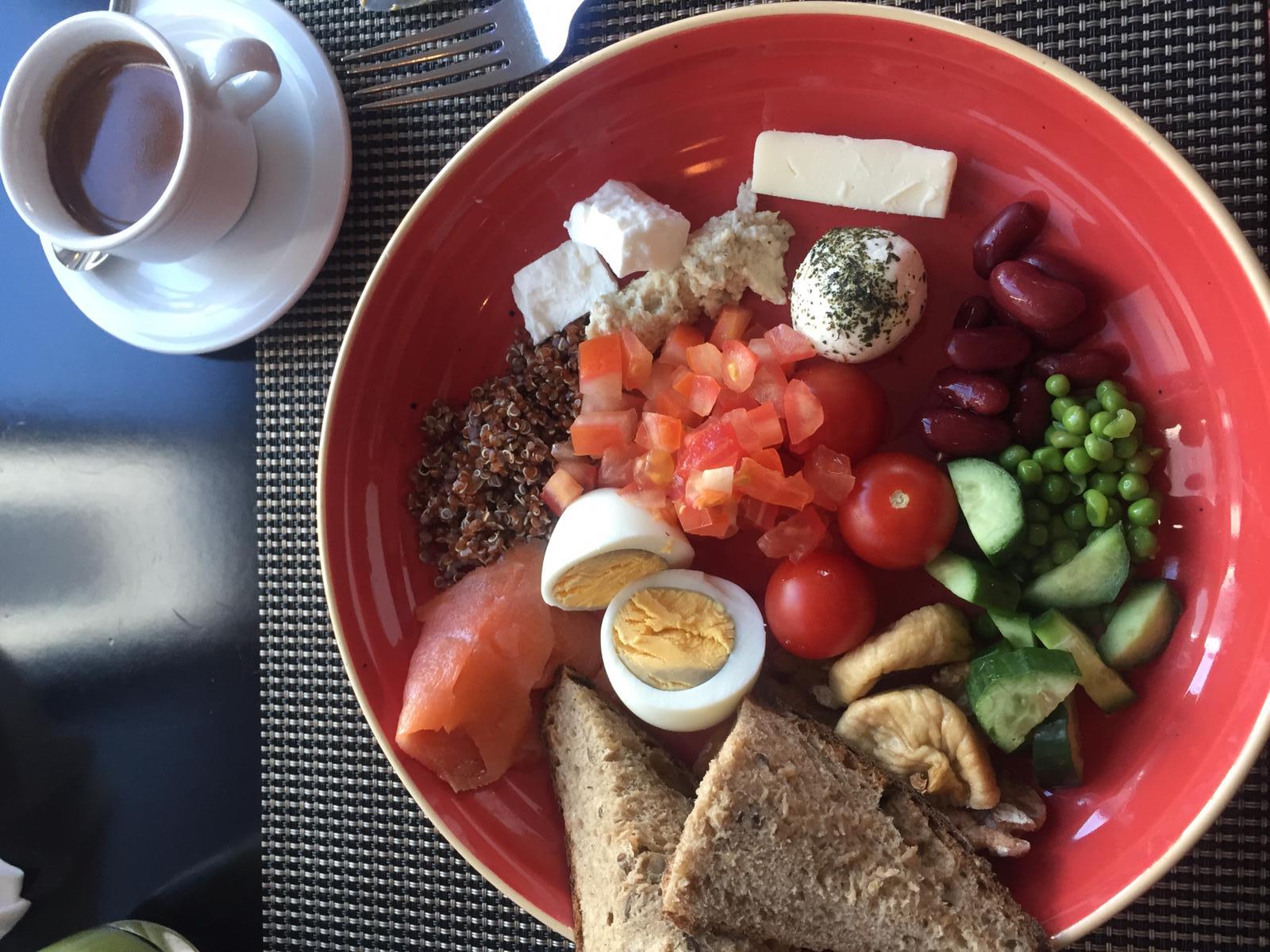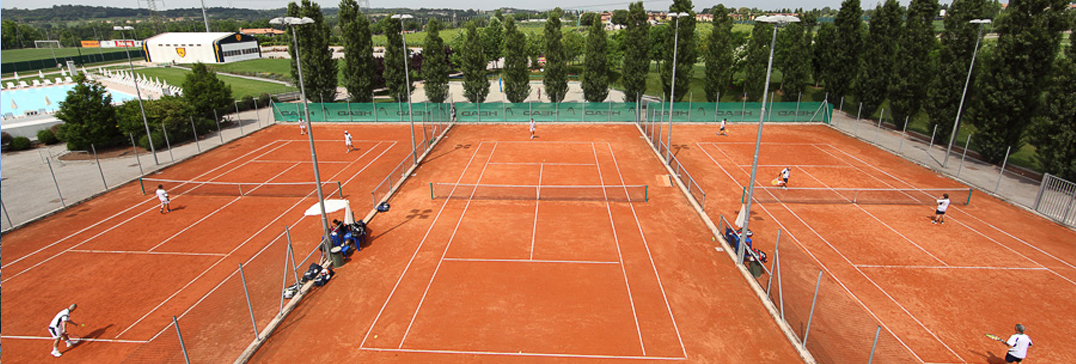02/10/2019 | Emily Webley-Smith

As a pro tennis player nutrition is something that has always interested me but is also one of the first questions I get asked when I meet new people and tell them what I do. Optimum nutrition is something we are always trying to attain; for energy, for recovery, and for overall well- being. But to what extent can we take this? For me I have been both too extreme and too relaxed in my career at different times, sometimes through being instructed with poor information, sometimes through needing control in my life and using food for that purpose, and occasionally from the boredom of being the highly disciplined athlete that I usually am...or being human!
Now I believe I have found a good balance, and with the challenges that face travelling tennis players around the world and the variation we have to deal with in cultures, match length and quantity, as well as the climatic conditions, I think I have learnt to know what is right for me. Below are some examples of an average training diet, and how I would choose to eat, subject to availability! I do try to eat as naturally as possible, as when you are on the road as long as I have been, “astronaut” food gets a little tedious, but bars and shakes can be a saviour and a good addition in places where good food is simply not accessible.
Breakfasts
- Oats (hot or overnight cold) berries, yoghurt and nuts
- Poached eggs with avocado on rye toast
Morning snacks
- Apple and some nuts
- Banana and protein bar
- Oatcakes with natural nut butter
Lunch
- Sushi and salad
- Wholemeal pasta with chicken or seafood and light or no sauce and salad
- Sweet potato with cottage cheese and salad
Afternoon snacks
- Dates/apricots and few nuts
- A protein shake or green smoothie
Dinner
- Grilled fish or chicken with rice/couscous/quinoa and vegetables
- Light Thai or Indian lentil-based curry with rice and vegetables
Evening snacks
- Dark chocolate
- Frozen yoghurt/Good quality icecream
Recovery
Within an hour of finishing each training session, it is important to eat something to recover, with a protein: carbohydrate ratio of 2:1. Especially in the heat or after a tough physical session such as interval training, it can be hard to get something in the body this fast. Sometimes you simply don’t feel like eating, you might be travelling or you might be caught up doing one of the million things that daily life requires. However, I have learnt that this recovery “window” to replace some of the energy exerted, makes the biggest difference to how I feel in training the next day, or the next session.
Variety
I try to eat the widest range of vitamins and minerals that I can, for immunity and prevention of illness, which we are more prone to from the effects of long haul travel on the body, and fatigue from pushing our body to the limit, and in constant changing timezones. This includes a great deal of fruit and vegetables and I really enjoy eating a wide range of both.
Coffee
Hands up I require this to exist! I’m a double espresso straight-up kind of person and enjoy a flat white in the afternoon. Caffeine has been proved to be beneficial to athletes as a drug itself, increasing the body’s ability to burn fat during exercise, inhibiting pain, and providing high levels of antioxidants and endorphins. I am aware of the coffee that I drink, that I need to be well hydrated, and I ensure I drink extra water to combat the diuretic effects of coffee on the body.
Wine
Why? Because I’m human, because I like it and because I’m sure there are some antioxidants in there somewhere! I have grown up in Europe where it is normal to enjoy a glass of wine with dinner, and although I don’t drink every night, especially at tournaments, when I’m home I really enjoy good wine over good conversation with friends and family.
Treats
95% angel, 5% naughty....I really do eat well most of the time, but I absolutely love my treats and believe I deserve them! I eat dessert usually once a week, I eat a couple of squares of dark chocolate every day, and I look forward to both a great deal. And I love icecream.
Hydration
A lot of athletes find this area hard to get right, especially in some of the super humid conditions that we play in, and I have seen many cramps or suffer serious dehydration because of it. I’ve never cramped in my career and having lived in India, I am acutely aware of exactly how much I need to drink and when, and am very careful with this area. Off court, I drink only plain water, very rarely a good quality natural juice, or coconut water if it is available. On court, I prefer to drink water or a light electrolyte drink rather than sugary sports drinks, but if the match is long in tough conditions I may supplement this with a carbohydrate gel if I really need it.
Sugar
Since burning my legs with hot water two years ago, I’ve been much more careful about my sugar intake. I wouldn’t say I ate a lot before at all, but my increased awareness of how much of it is hidden, and the inflammation it causes, has led me to make better choices. The remarkable powers of healing that our body has if we treat it correctly astounded me with my burns, and made me realise that it is sugar we should fear, not fat. Increasing the level of good fats in my diet, and cutting out sugar completely during that time, literally mended my skin from broken to perfect and halved the healing time that I was given at the hospital. Since then I have continued to eat more good fats in my diet, and very little sugar- and I believe this has led to better recovery, primarily for my joints but also for my skin, hair and nails. I feel better, with fewer fluctuations in energy, and my immune system is strong.
Supplements
The jury is out on this one, and we receive continued conflicting advice from experts and in the media. Personally, due to my vitamin intake from food being entirely dependant on the quality of produce local to the tournament or country that I’m in, I do now take supplements more as an assurance than for anything else. I take a good multivitamin, an essential fatty acid omega 3,6+9, and at night a multi-mineral complex that includes extra calcium for my bones (with osteoporosis history in my family this is vital). I also take a glucosamine/chondroitin tablet for my joints to help deal with the wear and tear that 20 years of professional tennis has had on my body.
And that's it! I enjoy a wide variety of foods, I eat quite a lot, and most days am really hungry when I wake up. I’m aware I work hard for my food, indeed when I am not training it amazes me how my appetite decreases and I simply don’t feel like eating as much at all. An average day for me involves 3 hours of tennis and 1-2 hours of physical training and eating 5-6 times a day works better for me than 3 big meals. My weight is stable give or take 2kg here and there, but I no longer beat myself up about that. Now, I put more emphasis on being fast, strong and healthy and what it takes in my daily nutrition to optimise that. I’m often asked how do I have so much energy and at 35 and still going strong, I do believe I have more energy than most and need less sleep. It’s not rocket science, but I have learned to treat my body as well as I possibly can, with the kindness it deserves. I am grateful to be healthy and appreciate the opportunity to still be playing professional sport, therefore it is down to me and me only, to take the best care of the body I have, so I can do so for as long as possible.

